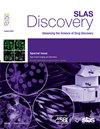在 iPSC 衍生的巨噬细胞中重现 NOD/RIPK2 信号。
IF 2.7
4区 生物学
Q2 BIOCHEMICAL RESEARCH METHODS
引用次数: 0
摘要
人类诱导多能干细胞(iPSC)衍生巨噬细胞(IDMs)是研究体外炎症途径的单核细胞衍生巨噬细胞(MDMs)的重要替代品。通过优化IDM分化方案,髓系祖细胞的产量提高了六倍。研究人员进一步鉴定了衍生的IDM细胞在核苷酸结合寡聚化结构域(NOD)和受体丝氨酸/苏氨酸蛋白激酶2(RIPK2)信号转导方面的特性,后者是自身免疫性疾病的关键调节途径。与 THP-1 细胞相比,IDM 细胞在促炎趋化因子和炎症细胞因子指纹方面更接近于再现了 MDM 的生物学特性。在评估 RIPK2 对肿瘤坏死因子 α(TNF-α)(一种主要的炎症介质)的调节作用时,在 IDMs 和 MDMs 中观察到 RIPK2 抑制剂具有相似的药理作用。此外,IDMs 和 MDMs 对 NOD1/2 刺激和 RIPK2 药物抑制的反应显示出相似的转录和通路特征。总之,改进的IDM分化方案提高了髓细胞的产量,为在炎症性疾病中利用生理学相关的巨噬细胞模型提供了新的机会。本文章由计算机程序翻译,如有差异,请以英文原文为准。
Recapitulation of NOD/RIPK2 signaling in iPSC-derived macrophages
Human induced pluripotent stem cell (iPSC)-derived macrophages (IDMs) present a valuable substitute for monocyte-derived macrophages (MDMs) in order to study inflammation pathways in vitro. Through optimization of an IDM differentiation protocol, a six-fold increase in the production yield of myeloid progenitors was achieved. The derived IDMs were further characterized with respect to nucleotide-binding oligomerization domain (NOD) and receptor-interacting serine/threonine-protein kinase 2 (RIPK2) signaling, a key regulatory pathway for autoimmune diseases. The IDM cells recapitulated MDM biology with respect to the proinflammatory chemokine and inflammatory cytokine fingerprint more closely than THP-1 cells. When assessing RIPK2 modulation effect on tumor necrosis factor α (TNF-α), a cardinal mediator of inflammation, a similar pharmacological effect of RIPK2 inhibitors was observed in IDMs and MDMs. Additionally, IDMs and MDMs displayed a similar transcription and pathway profile in response to NOD1/2 stimulation and pharmacological inhibition of RIPK2. In summary, the enhanced myeloid production yield in the improved IDM differentiation protocol offers new opportunities for utilizing physiologically relevant macrophage models in the context of inflammatory diseases.
求助全文
通过发布文献求助,成功后即可免费获取论文全文。
去求助
来源期刊

SLAS Discovery
Chemistry-Analytical Chemistry
CiteScore
7.00
自引率
3.20%
发文量
58
审稿时长
39 days
期刊介绍:
Advancing Life Sciences R&D: SLAS Discovery reports how scientists develop and utilize novel technologies and/or approaches to provide and characterize chemical and biological tools to understand and treat human disease.
SLAS Discovery is a peer-reviewed journal that publishes scientific reports that enable and improve target validation, evaluate current drug discovery technologies, provide novel research tools, and incorporate research approaches that enhance depth of knowledge and drug discovery success.
SLAS Discovery emphasizes scientific and technical advances in target identification/validation (including chemical probes, RNA silencing, gene editing technologies); biomarker discovery; assay development; virtual, medium- or high-throughput screening (biochemical and biological, biophysical, phenotypic, toxicological, ADME); lead generation/optimization; chemical biology; and informatics (data analysis, image analysis, statistics, bio- and chemo-informatics). Review articles on target biology, new paradigms in drug discovery and advances in drug discovery technologies.
SLAS Discovery is of particular interest to those involved in analytical chemistry, applied microbiology, automation, biochemistry, bioengineering, biomedical optics, biotechnology, bioinformatics, cell biology, DNA science and technology, genetics, information technology, medicinal chemistry, molecular biology, natural products chemistry, organic chemistry, pharmacology, spectroscopy, and toxicology.
SLAS Discovery is a member of the Committee on Publication Ethics (COPE) and was published previously (1996-2016) as the Journal of Biomolecular Screening (JBS).
 求助内容:
求助内容: 应助结果提醒方式:
应助结果提醒方式:


